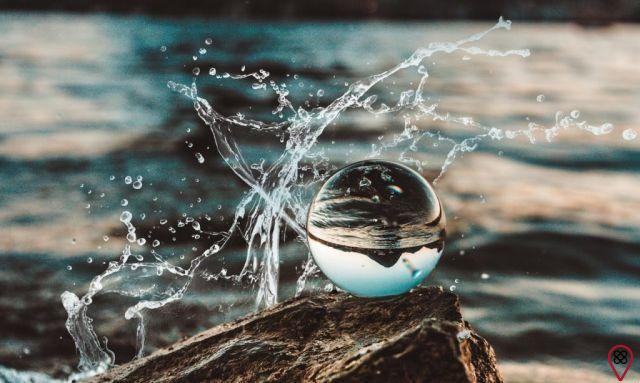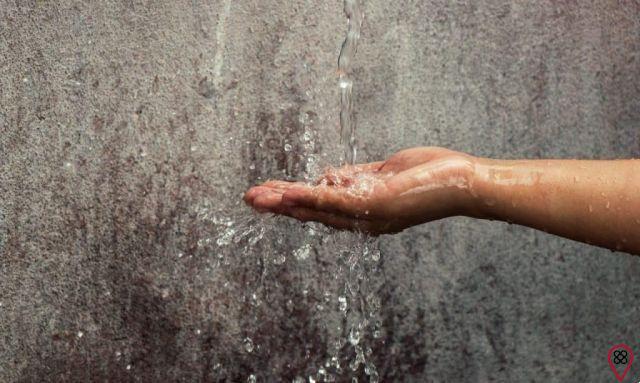Water is life! It is known to all that we can go a few days without food, but we would barely survive without water. Some knowledge about it is popular: we know, for example, that water is linked to emotions and that 70% of our body is made up of this element. Water is related to the Moon and the feminine.
Water and Feng Shui
In Feng Shui, water is related to prosperity and energy. If you are having financial problems and lack of energy (chi), make sure there are no leaks, broken faucets and standing water. Consult a professional to understand which part of your home corresponds to the financial area and how she can help you in case, for example, of a slow water course very close to the house.
Elementals and water
Following the tradition of Paracelsus, Anthroposophy recognizes the existence of elemental beings among us, or “spirits of nature”, who have an etheric constitution. As the name implies, these beings are linked to the four elements: gnomes, with the earth; sylphs, with air; salamanders, with fire; and undines (or nymphs) with the water.

If, for Paracelsus, the elementals had a role in our healing, for Rudolf Steiner, creator of Anthroposophy, there was more: without the help of these beings, we would not be able to “organize our own thoughts”. Yet, by denying the existence of these beings, “we deny the understanding of the world, an understanding necessary for life, health and, especially, for the art of healing.” (Peter Tompkins).
Steiner also recognized the undines' work in relation to our emotions.
Water in the four temperaments
Following the tradition of Hippocrates and Carl Jung, Anthroposophy also recognizes the four temperaments: melancholic (earth element); choleric (fire element); sanguine (air element) and phlegmatic (water element).
In Waldorf schools, based on Anthroposophical philosophy, this knowledge is of vital importance: children of the same temperament are placed close to each other and in opposition to the antagonistic temperament, that is, phlegmatic as opposed to choleric and melancholic as opposed to sanguine.
The phlegmatic child is “turned on” by the interest of other children and when he feels useful in that environment.

This temperament is linked to the astral (emotional) body and the glandular system.
Note that the ether element, which predominates in a phlegmatic body, is the same chi that Feng Shui associates with water.
Water and the human psyche according to Jung
“For Jung, the Theory of the Four Elements is an alchemical metaphor to explain the process of formation and integration of the human psyche.” (Ana Penedo)
This theory shaped one of the self-knowledge tools I work with, the MBTI®. For Jung, the conscious is expressed in four ways: through thought (air element), sensation (the five senses - earth element), intuition (fire element) and feeling (air element).
- Check out the definition of ego by Carl Jung
- Know the meanings of the zodiac signs
- Uncover the meanings of dreaming about dirty water
- Immerse yourself in the relationship between water and emotions
- Analyze the influence of water on the human body
Each of these roles can be expressed in an introverted or extroverted way, which in the MBTI® results in 16 different personalities.
water in the zodiac
The water element (emotion) signs are Cancer, Scorpio and Pisces. In the Zodiac, this element has to do with “feelings, impressions, sensations, needs and closeness” (Vanessa Tuleski).
The person with little water element in the chart may tend to be less compassionate, for example. The person with too much water may refuse to see evidence.

























